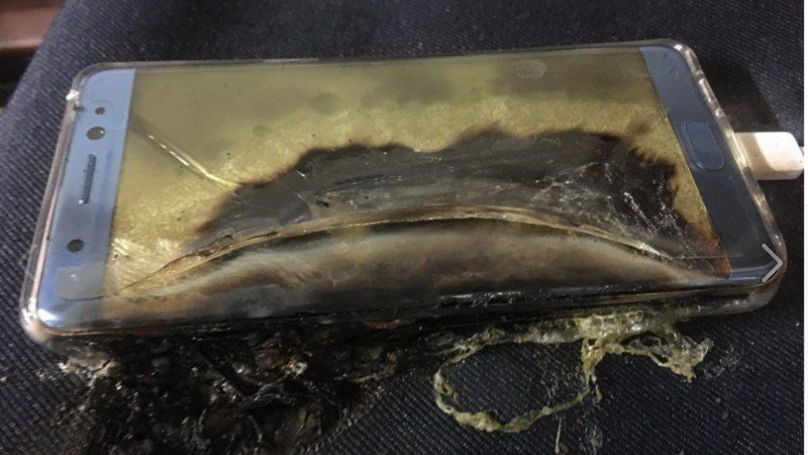Samsung Galaxy Note 7 explosion issue could happen to any phone
The kinds of batteries used in almost every mobile phone have already been banned from planes, and are given to blowing up too

Your support helps us to tell the story
From reproductive rights to climate change to Big Tech, The Independent is on the ground when the story is developing. Whether it's investigating the financials of Elon Musk's pro-Trump PAC or producing our latest documentary, 'The A Word', which shines a light on the American women fighting for reproductive rights, we know how important it is to parse out the facts from the messaging.
At such a critical moment in US history, we need reporters on the ground. Your donation allows us to keep sending journalists to speak to both sides of the story.
The Independent is trusted by Americans across the entire political spectrum. And unlike many other quality news outlets, we choose not to lock Americans out of our reporting and analysis with paywalls. We believe quality journalism should be available to everyone, paid for by those who can afford it.
Your support makes all the difference.Samsung’s exploding Galaxy phones might be a spectacular failure, and have now been pulled from sale. But the same kinds of problems can blight even the safest handset.
While something appears to have gone seriously wrong with Samsung’s Galaxy Note 7, the same lithium-ion batteries that are used in almost every major phone can have many of the same effects.
The batteries – notoriously unstable but the best for holding charge until something better comes along – can explode and catch fire if they are even slightly damaged.
Those problems have, for instance, led to reports that phones including iPhones have exploded before they have even reached their owners. And they have led to phone batteries being banned from flights, until they can be stored in more fireproof packaging.
Such batteries are mostly safe, only exploding if they are hit by or pierced with a large amount of force or exposed to other extreme conditions. But they are still risky – and only stay safe because of a delicate balancing act between performance and safety.
It was that kind of problem that initially seemed to be hitting the Samsung phones. The company indicated that there were issues with its batteries – but that those would be fixed with replacement models that would be issued to everyone with one.
If the problem is with the battery, then it is something that could hit any electronic device.
"When designing batteries, there is a trade-off between how long a battery will last between charges and how safe it is to actually operate. Samsung has possibly pushed too far in the direction of 'performance’,” Professor Harry Hoster, director of energy at Lancaster University, told the Press Association.
"It is genuinely difficult to estimate how much the risk of total battery failure may increase by in the pursuit of such performance, since these are rare events that only become countable once the batteries are in mass production - that is, when it is too late."
But the recent explosions seem to suggest that there might be something else as well as the battery – either that the first issue was misdiagnosed or that there has been more than one problem with the phones.
Oh Yu-cheon, a senior official at the Korean Agency for Technology and Standards which oversees product recalls, said that the cause of the problem was still being looked into.
"The improved product does not have the same defect,” said Mr Oh. “That's why we think there is a new defect.”
Join our commenting forum
Join thought-provoking conversations, follow other Independent readers and see their replies
Comments